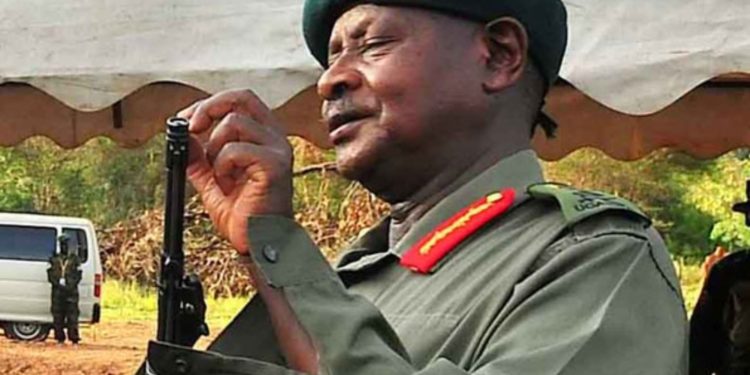The opposition’s 48-hour ultimatum demanding the release of Dr. Kizza Besigye and other so-called political prisoners is yet another symbolic but ineffective attempt to challenge President Yoweri Museveni’s government. While opposition leaders, including Bobi Wine, Mugisha Muntu, and Jimmy Akena, may hope to apply pressure, history and political reality suggest that this ultimatum will yield no results. Here’s why:
1. Museveni’s Government Has Never Bowed to Opposition Pressure
For nearly four decades, Museveni has built a strong, structured government that does not respond to threats from the opposition. Ultimatums have been issued before—and ignored. Whether it was 2011’s “Walk to Work” protests, the 2016 defiance campaign, or even the post-2021 election demonstrations, every attempt by the opposition to force the government’s hand has failed. Why should this time be any different?
2. Besigye Is Not a Political Prisoner—He Has a Record of Lawlessness
Opposition leaders frame Dr. Besigye as a victim of political persecution, but in reality, he has been arrested multiple times for breaking the law. His political style is based on defiance, illegal processions, and inciting protests that disrupt public order. No government anywhere in the world would tolerate a politician who openly calls for mass insurrection. His legal troubles are a result of his own choices, not political victimization.
3. The Opposition’s Repeated Mistakes and Disunity
While the opposition presents this ultimatum as a “rare show of unity,” the truth is that Uganda’s opposition is deeply fragmented. Bobi Wine and Besigye have long had rival camps, with Besigye refusing to back Bobi Wine in 2021. Mugisha Muntu has also distanced himself from radical opposition tactics. This so-called unity is only temporary, and Museveni’s government knows that they lack the ability to sustain a coordinated resistance.
4. The Government’s Firm Grip on Security and Law Enforcement
Museveni’s government controls a well-trained security apparatus that has successfully contained past opposition attempts at mass protests. The police, military, and intelligence services have repeatedly shown that they will act swiftly to suppress any illegal demonstrations. The opposition’s threats of “national action” are empty words because the security forces are prepared to handle any disruptions.
5. The People Are Tired of Political Drama
Ordinary Ugandans are more focused on economic survival than opposition ultimatums. Many people remember the instability of Uganda’s past regimes and prefer peace and economic progress over continuous protests. The opposition has failed to mobilize mass support beyond a few urban pockets, meaning their threats of national action do not reflect the broader public sentiment.
6. International Pressure on Museveni Is Minimal
Despite opposition efforts to seek global sympathy, Museveni has solid international backing. His government is a key player in regional security, particularly in Somalia, South Sudan, and the DRC. Western nations see him as a stabilizing force and are unlikely to intervene in Besigye’s case. Without external pressure, the opposition’s ultimatum remains a domestic stunt with no real consequences.
7. The Legal Process Will Take Its Course
While the Supreme Court ruled against the trial of civilians in military courts, this does not automatically mean Besigye will be freed. Legal processes take time, and the government can still pursue him under civilian courts. Opposition claims that Besigye is being held “illegally” ignore the fact that he has been arrested on legitimate charges related to national security.
In conclusion therefore I observe that the opposition’s 48-hour ultimatum is destined to fail because it lacks real leverage. Museveni’s government is too strong, the opposition is too weak and divided, and the people are not motivated to rise up. Besigye’s arrest is not a political crisis for Uganda—it is merely another chapter in the opposition’s long history of ineffective protests. If the opposition truly wants to challenge Museveni, they need a new strategy—one based on policies and political organization rather than empty threats.
The author, Trevor Solomon Baleke is the Deputy RDC of Kayunga district and veteran journalist.















